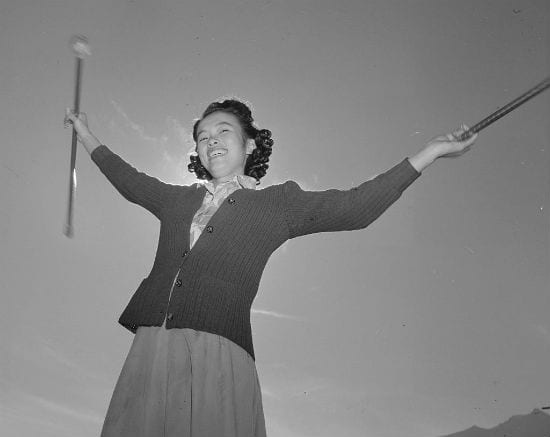Here is your open thread for February 20, 2020.
Kurt Cobain would’ve been 53 years old today.
February 20 is the day the Postal Service Act was enacted, so it’s the birthday of the USPS. It’s also the day the Metropolitan Museum of Art was founded, the day the Blaine Act repealing Prohibition was passed, and the day that John Glenn orbited the Earth aboard Friendship 7.
All four of those things are reminders that life is better with good, capable, ambitious government. You know, that whole, “establish Justice, insure domestic Tranquility, provide for the common defense, promote the general Welfare, and secure the Blessings of Liberty to ourselves and our Posterity” kind of thing.
Frederick Douglass, the greatest American who ever Americaned, was born in February 1818. Because he was born into slavery, the precise date of his birth is unknown. Because Douglass died on February 20 (in 1895) today’s date is usually chosen to commemorate his life. That’s why, for example, the Episcopal Church honors Douglass today. (Other Christian denominations, inexplicably, do not.)
Douglass is usually described as an “orator.” That’s not wrong, but it’s an inadequate and weirdly dismissive word. We tend to praise people for their “oratory” as a way of exempting ourselves from having to heed the content and the substance of their oratory. Douglass’ towering importance — politically, ethically, morally, theologically — doesn’t come from the skill with which he spoke or the tenor of his voice, but from the substance of his argument. Praising Frederick Douglass mainly as an “orator” is like summarizing the book of Isaiah as “well-written.”
The book of Isaiah isn’t a random example there. The words of that prophet were always close at hand for Douglass. That was the text he leaned on to preach the lifelong sermon we foolishly diminish as mere “oratory.”
The fact that the church of our country, (with fractional exceptions), does not esteem “the Fugitive Slave Law” as a declaration of war against religious liberty, implies that that church regards religion simply as a form of worship, an empty ceremony, and not a vital principle, requiring active benevolence, justice, love and good will towards man. It esteems sacrifice above mercy; psalm-singing above right doing; solemn meetings above practical righteousness. A worship that can be conducted by persons who refuse to give shelter to the houseless, to give bread to the hungry, clothing to the naked, and who enjoin obedience to a law forbidding these acts of mercy, is a curse, not a blessing to mankind.
That’s Isaiah. And lest anyone miss that, Douglass makes it explicit a few paragraphs later:
A religion which favors the rich against the poor; which exalts the proud above the humble; which divides mankind into two classes, tyrants and slaves; which says to the man in chains, stay there; and to the oppressor, oppress on; it is a religion which may be professed and enjoyed by all the robbers and enslavers of mankind; it makes God a respecter of persons, denies his fatherhood of the race, and tramples in the dust the great truth of the brotherhood of man. All this we affirm to be true of the popular church, and the popular worship of our land and nation — a religion, a church, and a worship which, on the authority of inspired wisdom, we pronounce to be an abomination in the sight of God. In the language of Isaiah, the American church might be well addressed, “Bring no more vain ablations; incense is an abomination unto me: the new moons and Sabbaths, the calling of assemblies, I cannot away with; it is iniquity even the solemn meeting. Your new moons and your appointed feasts my soul hateth. They are a trouble to me; I am weary to bear them; and when ye spread forth your hands I will hide mine eyes from you. Yea! when ye make many prayers, I will not hear. YOUR HANDS ARE FULL OF BLOOD; cease to do evil, learn to do well; seek judgment; relieve the oppressed; judge for the fatherless; plead for the widow.”
All of that is from Douglass’ 1852 speech “What to the Slave Is the Fourth of July?”
I used to think that no one should be permitted to graduate from any American seminary or Bible college without being required to read that, aloud, and to sign a form endorsing it. But I think I want to amend that to say that no one should be permitted baptism or confirmation in any American denomination without first doing so.
The late great director Robert Altman was born 95 years ago today. If I listed “the best” Altman movies, I’d just get in trouble and start a fight. So here instead is a completely subjective personal set of five favorites: Nashville, The Long Goodbye, Gosford Park, The Player, Cookie’s Fortune.
Pierre Boulle was born on February 20, 1912. He wrote two dozen novels, two of which are still famous: The Bridge Over the River Kwai and The Planet of the Apes. Based on that, I’m curious what all those other novels of his are about — it might be anything.
Legendary sleazebag Roy Cohn was born on February 20. He’d probably be wearing a Medal of Freedom around his neck at this point if he hadn’t died back in 1986.
Academy Award-winner Sidney Poitier, KBE, turns 93 today. Academy Award-winner Buffy St. Marie turns 79.
Nescafe-drinking school librarian Anthony Head celebrates his 66th birthday today. So does Patty Hearst. Sir Charles Barkley turns 57. Icons Cindy Crawford and Lili Taylor turn 54. Trevor Noah turns 35.
Finally, February 20 is the birthday of legendary landscape photographer and environmentalist Ansel Adams. Yosemite is jaw-droppingly beautiful, but I want to leave you with a rare Ansel Adams action photo of a person. This is “Baton Practice at the Manzanar War Relocation Center, 1943.” There’s a lot going on here.

Talk amongst yourselves.












